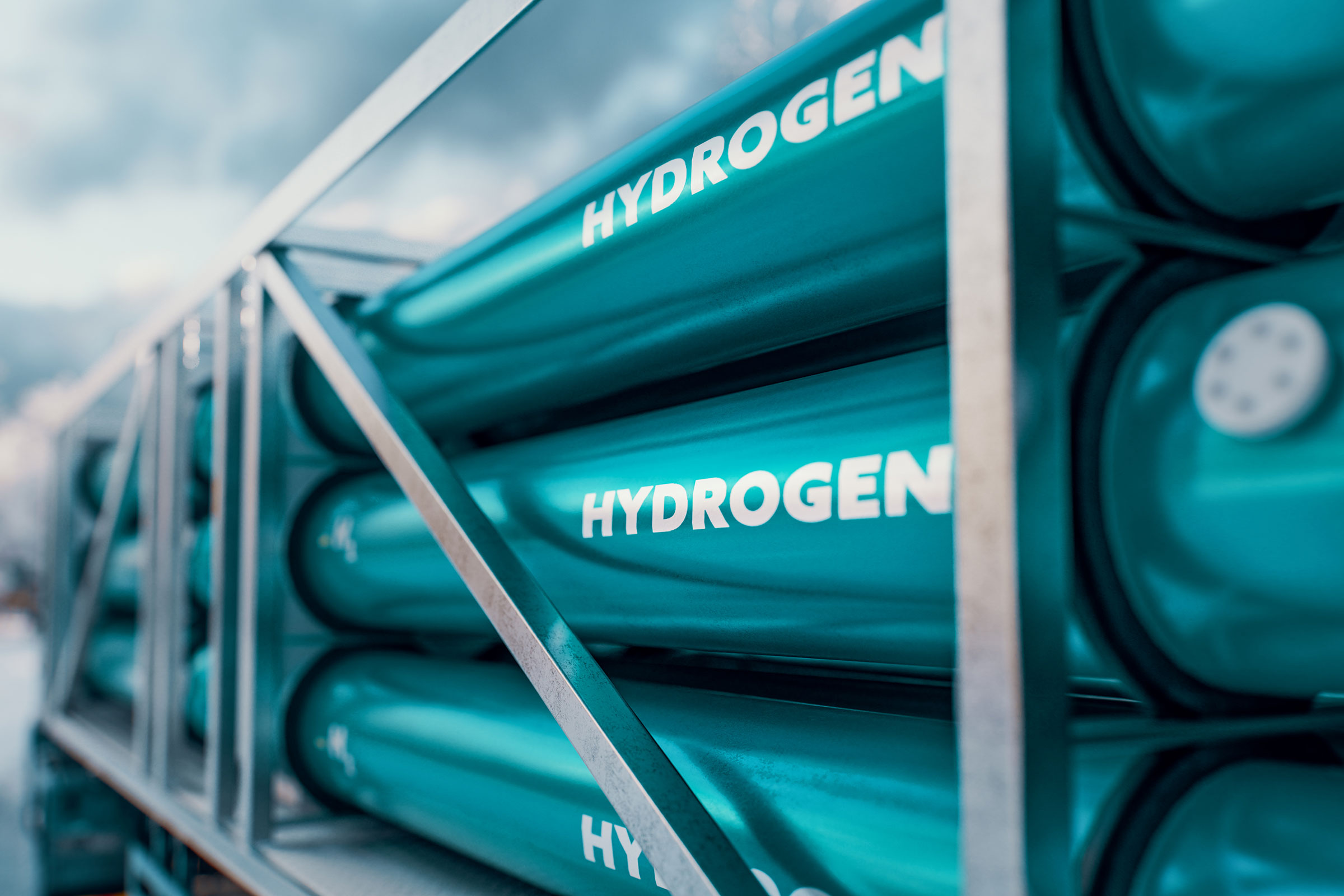Policy support needed to build a European hydrogen trucking ecosystem


The H2Accelerate collaboration has published its latest policy paper today. It highlights the actions and support needed from policymakers to establish a European hydrogen trucking ecosystem and meet the heavy-duty vehicle (HDV) CO2 targets set by the European Commission.
Urgent support is needed to enable policy targets to be achieved.
The updated HDV CO2 targets set by the European Commission require a 45% reduction in greenhouse gas emissions from heavy-duty vehicles by 2030, compared to 2019. Achieving these targets relies on the sale of zero-emission trucks, namely battery and hydrogen technology, with tens of thousands of hydrogen vehicles needed on European roads by 2030, according to ACEA's estimates, alongside the upstream hydrogen production and refuelling infrastructure. Recognising the role of hydrogen trucking in achieving decarbonisation targets, the European Commission has implemented the Renewable Energy Directive (RED) to ensure that member states increase their use of renewable energy, the Alternative Fuels Infrastructure Regulation to mandate the availability of zero emissions refuelling and recharging infrastructure, and funding schemes, such as the Connecting Europe Facility Alternative Fuels Infrastructure Fund to promote zero carbon mobility.
These actions have provided positive signals for the hydrogen trucking sector. However, uncertainty on the long-term business case impedes the long-term, large-scale investments needed. The recent report on 'The future of European competitiveness', by Mario Draghi, recognises the role of hydrogen in maintaining European competitiveness and achieving decarbonisation goals.
This report highlights that hydrogen will need to play a specific role in decarbonising hard-to-abate sectors, such as transport, and advocates for the European Union to support investments in renewable fuels via funding schemes and renewable fuel support programmes, including CEF AFIF and the European Hydrogen Bank. Niklas Gustafsson, Head of Public Policy & Regulatory Affairs from Volvo Group, said: "At Volvo Group, we recognise hydrogen as a key solution to decarbonise long-distance trucking. However, we also see that the pathway to a positive business case is challenged today.
We are committed to realising the hydrogen trucking ecosystem, but we need to do this together with governments through strong policy support to accelerate and sustain this ecosystem. We believe that recognition from all stakeholders on the challenges we are facing and the changes needed to resolve them is urgently needed."
Recommended actions for policymakers
Although the Commission has made significant strides, members of the H2Accelerate collaboration have identified several key areas that are constraining the implementation of hydrogen as a fuel for heavy-duty road transport in Europe. The policy paper recommends that European policymakers take the following actions to enable industry and government to build the hydrogen trucking ecosystem together:
- Fund the joint deployment of hydrogen refuelling stations and hydrogen trucks.
2. Coordinate geographic spread of hydrogen refuelling and production infrastructure with input from member states and industry.
- Create certainty on the availability of renewable hydrogen for road mobility through the European Hydrogen Bank and RED mandates.
- Ensure member states implement measures to achieve a total cost of ownership that is competitive with diesel trucks, for example, through increasing carbon tax under ETS II, sufficiently high RED credits for green hydrogen, and reduced road tolls and tax exemptions for zero-emission vehicles.
- Commit to delivering on existing policy and regulatory frameworks and ensure that regulations are consistent with decarbonisation targets by continuously monitoring the transition.
The H2Accelerate members believe that these measures will create enabling conditions for the series production and scaled deployment of hydrogen trucks and coordinated deployment of the supporting infrastructure. Urgently implementing these actions is a prerequisite to achieving a 45% reduction in emissions by 2030 and climate neutrality by 2050.
Hannah Bryson-Jones, Spokesperson for the H2Accelerate collaboration, said: "Hydrogen as a fuel for heavy-duty road transport is still in the early stages of scale-up and investing in this technology currently presents a huge risk for companies working to decarbonise.
With just over 5 years until 2030, we cannot afford to hold back investment in technological innovation and infrastructure build-out due to uncertainty on the long-term business case.
The H2Accelerate collaboration is committed to working transparently with the European Commission to set a roadmap and action plan to achieve 2030 targets."